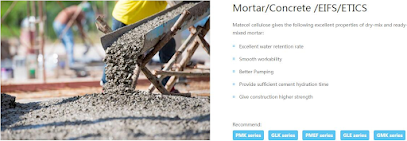Different Types of Glass
Glass is one of the most popular and advanced building materials available today. It offers virtually unlimited aesthetic options and has excellent performance. It is a clear, hard substance formed by applying a large amount of heat to sand or quartz. It is a brittle material that is weather resistant.
Uses of Glass
Glass is an infinitely innovative material with many uses. It is such an important part of many of the products we use in our daily lives that most of the time we don't even notice it.
Energy Saving Glass Low E Insulated Solar Control Glass For Office Building
Here, we give some of the uses of glass as follows.
Windows and doors
Exterior walls
Reinforced structures
Food can packaging
Beverage bottles
Tableware (plates, cups, bowls)
Cosmetic and pharmaceutical bottles
Renewable energy (solar glass, wind turbines)
Medical technology, optical glass, biotechnology, etc.
Interior design and furniture elements, such as mirrors, railings, tables, partitions, etc.
Automotive and transport, such as aircraft, ships, windshields, backlights, etc.
Application and electronic elements such as cooktops, oven doors, TVs, computer screens, smartphones, etc.
Interior Decoration
Types of Glass
The types of glass used in construction are:
Tempered Glass
Laminated Glass
Insulating glass unit
Float Glass
Shatterproof Glass
1. Tempered Glass
Tempered glass is a durable glass with low visibility. It is available in various thicknesses and when it is broken, dangerous small granular lumps are formed. This is also referred to as toughened glass. This type of glass is used in fire doors, mobile screen protectors, etc.
2. Laminated Glass
Laminated glass is a combination of ordinary glass layers. As a result, it has more weight than regular glass. It has more thickness and provides UV protection and sound insulation. These are used in aquariums, bridges, etc.
Laminated Glass
3. Insulating glass unit
An insulating glass unit contains a glass separated into two or three layers by air or vacuum. Since there is air between the two layers, they do not allow heat to pass through and act as good insulators. These are also referred to as double glazed units.
4. Float Glass
Float glass manufactured from sodium silicate and calcium silicate so, it is also called as soda-lime glass. It is clear and flat, so it causes glare. Thickness of the float glass is available from 2mm to 20mm, and its weight range from 6 to 36 kg/m2. The application of float glass includes shop fronts, public places, etc.
Float Glass
5. Shatterproof Glass
Shatterproof glass is used for windows, skylights, floors, etc. Some type of plastic polyvinyl butyral is added during its process. As a result, it cannot form sharp-edged shards when broken.
How do you clean and maintain glass?
Whether you already have glass installed in your property, or have recently benefited from a new installation, making sure your glass fixtures and fittings are kept in top condition is always a priority. Luckily, we have the glass maintenance tips you need!
Follow these important tips to keep your glass in great condition for years to come.
#If glass comes in contact with a substance that stains it, be sure to remove it quickly with the right product. Many stains can be removed with products containing toluene or mineral spirits.
High Way Road Glass
#Clean regularly. Depending on the location of your glass, this may involve simply using hot water and the right tools to remove dust and dirt. To obtain a streak-free finish, use white vinegar or a suitable commercial glass cleaner. For large areas of glass on a building, a commercial window cleaning company may be required.
#Be especially vigilant after inclement weather. If you have exterior fixtures (such as pool fences or railings), inclement weather can cause fixtures to loosen and deposit large amounts of debris on your glass fixtures. Taking prompt remedial action after a storm can help minimize the risk of damage to the glass from high winds.
Railing Glass
#Check fittings and fixtures regularly. Loose glass clips or other fixtures can cause your glass panels to become unstable, increasing the risk of their complete separation and breakage. Checking your glass fixtures regularly and performing prompt maintenance if you notice any signs of deterioration will help protect your glass from this hazard.
Contact for more information on proper glass care, including assistance with professional installation.







评论
发表评论